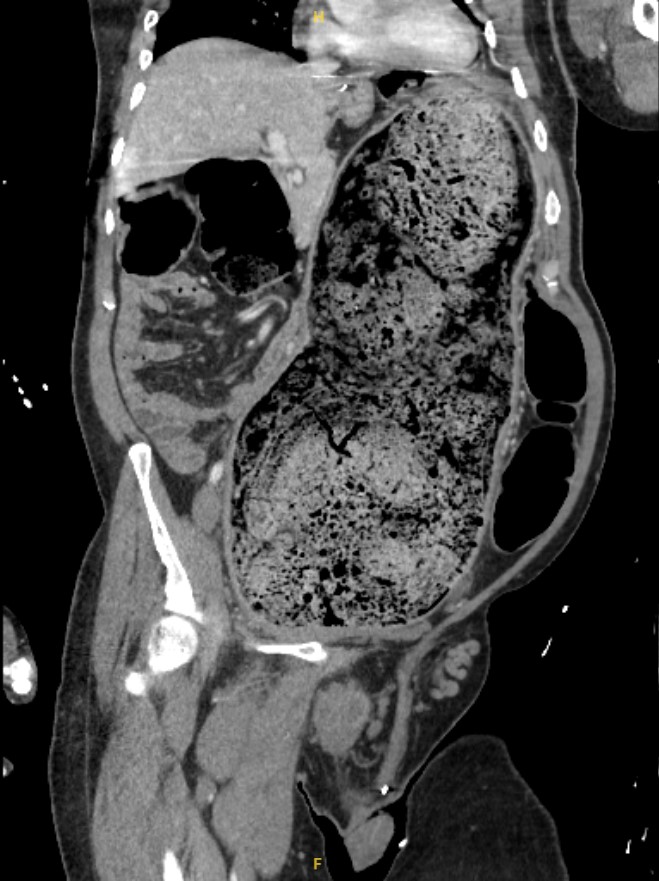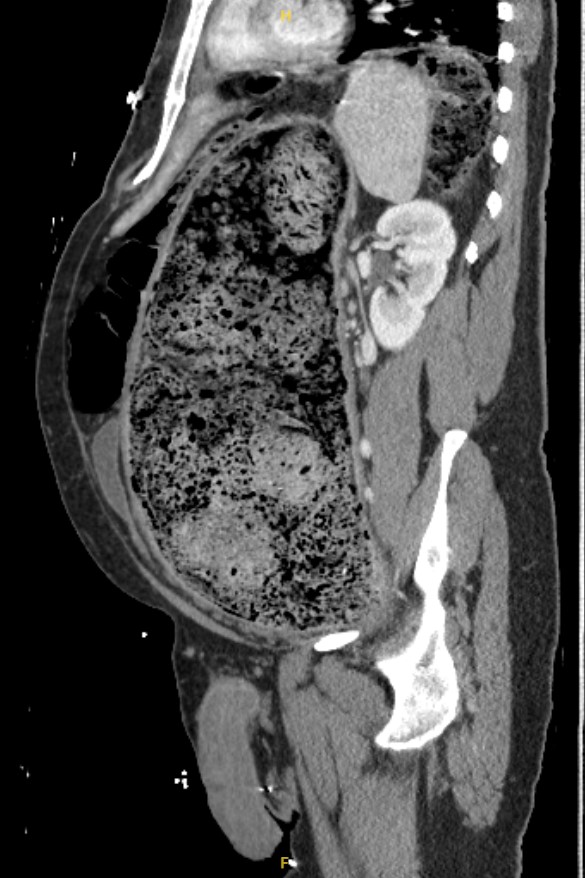Monday Poster Session
Category: Colon
P2555 - Chronic Constipation in a Patient with Dubowitz and Smith-Lemli-Opitz Syndrome

Regine Lim, DO
Advocate Christ Medical Center
Oak Lawn, IL
Presenting Author(s)
1Advocate Christ Medical Center, Oak Lawn, IL; 2Advocate Christ Medical Center, Chicago, IL
Introduction:
Dubowitz syndrome is a rare genetic and developmental disorder. Smith-Lemli-Opitz syndrome (SLOS) is a metabolic autosomal recessive genetic disorder due to a deficiency of 7-dehydrocholesterol reductase (7-DHC). Both syndromes are characterized by multiple congenital anomalies, cognitive delay, abnormal behavioral traits, and a wide clinical spectrum affecting several body systems. Specifically for gastrointestinal issues, the described disorders include issues like GERD, achalasia, pyloric stenosis, anal stenosis, Hirschsprung disease, and chronic constipation. We describe a case of a 43-year-old male with both genetic syndromes who suffers with chronic constipation requiring multiple hospitalizations and fecal disimpactions under anesthesia.
Case Description/
Methods:
A 43-year-old male with a past medical history of Dubowitz syndrome, SLOS syndrome, and hypertension presented with constipation. His reported last bowel movement was 3 weeks prior to admission despite regular use of stool softeners including miralax and magnesium citrate. He had a history of several hospitalizations for the same requiring fecal
disimpactions under anesthesia. Computed tomography scan of the abdomen and pelvis revealed diffuse rectal vault distention measuring up to 16 cm with additional dilation of the sigmoid and upstream colon. He was taken for fecal disimpaction under anesthesia with successful disimpaction. The patient was discharged home on an aggressive bowel regimen with plans to discuss possible future colectomy for his recurrent constipation.
Discussion:
Both Dubowitz syndrome and SLOS are very rare genetic conditions that are not commonly encountered. Early recognition of these syndromes is vital for individuals as it allows for proper surveillance and management of the many gastrointestinal issues they may present with. Management is further complicated by the cognitive and behavioral issues associated with these syndromes, as medication and dietary adherence may pose a challenge. In this patient, recognizing that his constipation may be related to either of his genetic syndromes early on may have helped form a better-informed treatment plan to prevent recurrent hospitalizations and procedures. We must also consider the possibility that Hirschsprung disease may be an underlying cause of this patient’s constipation as it has been associated with SLOS in literature. This case ultimately opens up a discussion for potential surgical treatment with partial colectomy for his refractory constipation.
Figure: Coronal view of the colonic dilatation on CT abdomen pelvis.
Figure: Sagittal view of the colonic dilatation on CT abdomen pelvis.
Disclosures:
Regine Marie Lim indicated no relevant financial relationships.
Kamakshi Katwala indicated no relevant financial relationships.
Krishna Shah indicated no relevant financial relationships.
Matthew Posen indicated no relevant financial relationships.
Bayan Yazdi indicated no relevant financial relationships.
Rogelio Silva indicated no relevant financial relationships.
Regine Marie Lim, DO1, Kamakshi Katwala, MD2, Krishna Shah, MD2, Matthew Posen, DO1, Bayan Yazdi, MD1, Rogelio Silva, MD1. P2555 - Chronic Constipation in a Patient with Dubowitz and Smith-Lemli-Opitz Syndrome, ACG 2025 Annual Scientific Meeting Abstracts. Phoenix, AZ: American College of Gastroenterology.
